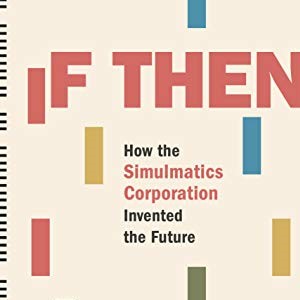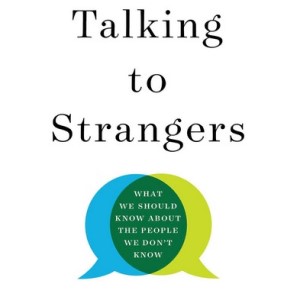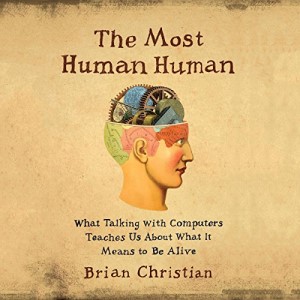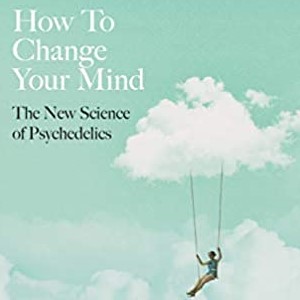The writer never really succeeds in making the Simulmatics story seem important, partly because due to endless digressions about the bad marriages of the men who founded the company and partly because she avoids any substantial assessment of the actual models they used.
Seneca and his friends have a lot of practical advice for navigating life
Ward Fransworth – The practicing Stoic
there is no reason to get too excited about this book.
Truly understanding strangers is difficult, but failing to do so may cause grave harm to individuals as well as society as a whole
Malcolm Gladwell – Talking to strangers
Gladwell once more makes his well known point that prejudice is often subconscious and institutionalized (cf. also Blink), this time inspired by a BLM atrocity.
It is a miracle that databases actually work, considering all the things that can go wrong
Martin Kleppmann – Designing Data-intensive applications
Surprisingly readable for a text of this sort of technical depth
Folk tales about vampires and werewolves are based in an exaggerated fear for rabies
The detailed synopsis of (what seems like) every book, play, or movie that ever mentioned rabies gets boring pretty fast.
Kill Powerpoint, have to 2-pizza teams, and get your core values straight
Colin Brayer and Bill Carr – Working backwards
Somehow, there is no mention of pee bottles or other excesses concerning operational staff in the book.
It requires a lot of dedication to learn superior memorization skills, but it can be done
Joshua Foer – Moonwalking with Einstein
Endearing blend of journalism and personal experience.
Experiencing other people’s suffering leads us away from rational decision making
The seemingly controversial thesis turns out to be a platitude hidden behind a carefully crafted facade of definitions.
Feigning intelligence is not too difficult, considering that people can be fooled in many different ways
Brian Christian – The most human human
Unfortunately, the book does not explicitly challenge if humans are adequate judges in the Turing test.
It is easy to find an excuse for trying phychedelics when you are in a midlife crisis
Michael Pollan – How to change your mind
It is much harder to relate to the author’s obsession, which seems mostly driven by a some vague feeling of disappointment concerning life in general.
Remote access to MariaD
First install the LEMP stack on the server like so (to make sure we are prepared for what comes later when I will also use the database to serve a website).
To make the database accessible I first downloaded it from my hosting provider’s through myphpadmin. And then used this tutorial to load it.
I set up the local environment on the client (windows laptop) from which we will access the database. On the Windows laptop I use Conda as environment manager.
conda create -n db-test
conda activate db-test
pip install mariadbMake sure you run these with root permissions (or as administrator on Windows 10).
We need to allow access to the database on the server through the firewall. Of course we restrict to local IP addresses only.
sudo ufw allow proto tcp from 192.168.178.0/24 to any port 3306From there we follow the steps here, using this version:
sudo nano /etc/mysql/mariadb.conf.d/50-server.cnfIn that last file change the bind address tobind-address = 0.0.0.0
Set up a user with access from your specific client IP address in Madiadb on your server.
CREATE USER 'user'@'you.rcl.ien.t' IDENTIFIED BY 'password';
SELECT User, Host, Password FROM mysql.user;
GRANT SELECT, INSERT, UPDATE, DELETE, DROP ON your_db.* TO 'test'@'you.rcl.ien.t';For connecting I use the python connector.
With this script:
#!/usr/bin/env python
import mariadb
import sys
# Define mariadb connection configuration
config = {
'user': 'user',
'password': 'password',
'host': 'you.rse.rve.r',
'database': 'your_db',
'port': 3306
}
# Instantiate Connection
try:
conn = mariadb.connect(**config)
print(f'Yup! {conn}')
conn.close()
except mariadb.Error as e:
print(f"Error connecting to MariaDB Platform: {e}")
sys.exit(1)
Python and LEMP stack
Get pip, venv, and git:
sudo apt install python3-pip
apt-get install python3-virtualenv
sudo apt install python-is-python3
sudo apt install gitSet up LEMP stack following this tutorial.
Whenever you need to come to a rational decision: use Mathematics
Jordan Ellenberg – How not to be wrong
A cornucopia of charming mathematical anecdotes and facts
New install
Switching to the NVIDIA proprietary graphics driver led to a crash. I did not have a live disk, so I had to do a full re-install.
Couple of tweaks. First of all, there is a more rigorous fix for the NVIDIA driver boot issue here. At least there is now a Grub menu so that debugging is possible.
I have not yet dared to use the NVIDIA driver again. But in the start-up logs there is still an error related to the open source driver which seems to slow down the boot process.
To see boot errors:
journalctl -b | grep errorOne of the things I try is this to solve the NXDOMAIN error that I saw in the boot log:
sudo rm -r /etc/resolv.conf
sudo ln -s /run/systemd/resolve/resolv.conf /etc/resolv.confAlso followed this tip and re-installed Gnome:
sudo apt-get install --reinstall systemd gnome-settings-daemon gnome-settings-daemon-commonAnd enabled canonical-livepatch with a new token, as described here.
sudo snap install canonical-livepatch
sudo canonical-livepatch enable [#yourverylongtoken#]Graphics driver and remote desktop
Regularly I got a ‘white noise’ screen after closing/opening the laptop lid without logging out. Apparently that is a graphics driver issue. Luckily there is a simple way to switch over to the proprietary Nvidia driver.
As I was sitting on the coach I wanted to do this via remote desktop from my Windows computer. Also that was quite straightforward.
Still have to test the new graphics driver, though…
And update, one day later:
OUCH. Restart does not work. Everything dead. Not ssh connection. Reboot aborts. Black screen. Need to re-install everything.
Close and open the lid
Errors:
- When not logged in on the laptop: Closing the lid of the laptop would kill the ssh connection; and laptop would not wake after re-opening the lid.
- When logged in on the laptop: Closing and reopening the lid of the laptop gives color noise
This solved both the ssh connection and made sure the screen woke up again after re-opening: https://askubuntu.com/questions/1059705/keep-a-laptop-running-with-closed-lid
Closing the lid for a long time when logging still gives color noise. Apparently it is an issue with the open source driver. There is however a NVIDIA proprietary driver. More about that later.
Memory upgrade
My old MacBook Pro (mid 2010) had 2x2GB RAM installed.
Maximum capacity is 2x4GB.
It is easy to upgrade, following this tutorial.
The left terrorizes the right while bathing in victimhood
The purposeful one-sided rant makes the book lose all credibility, in particular since the arguments can easily be reversed – especially in the wake of Trump’s desperate challenge the US election outcome.
Do the Samba
SMB is the service that sets your Linux box up as a file server.
Quite a bit seems to have changed in Windows security settings and there are quite a lot of outdated howto ages out there.
I found one tutorial that works… almost.
- Be careful that your Samba user is a Linux user as well, like so.
- Testing the share locally, the workgroup is not recognized (“SMB1 disabled — no workgroup available”). The recommended solution does not work for me.
- In the end I did not see my Ubuntu server in the Network tab in Windows Explorer, but I could add it as a Network drive, a bit like here. And that is good enough for now.
- I don’t have all user rights fully configured, but considering that this is only one folder on a home network, this is not a hot issue.
Annoying things
MokListRT error at start-up.
Luckily there is a cure:
https://askubuntu.com/questions/1279602/ubuntu-20-04-failed-to-set-moklistrt-invallid-parameter
And there is the bugging icon size…
But I did not see a real difference after trying that out 🙁













